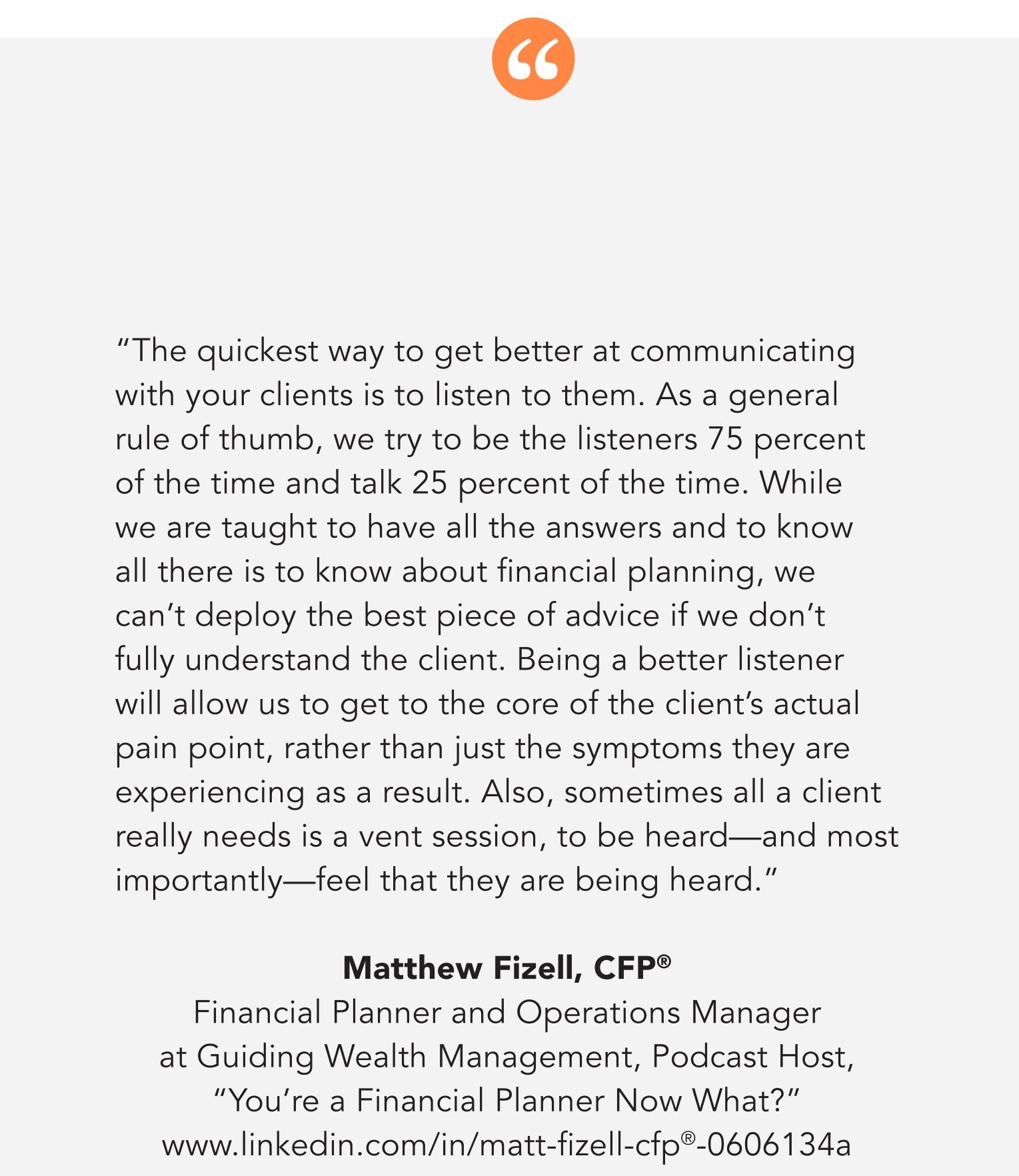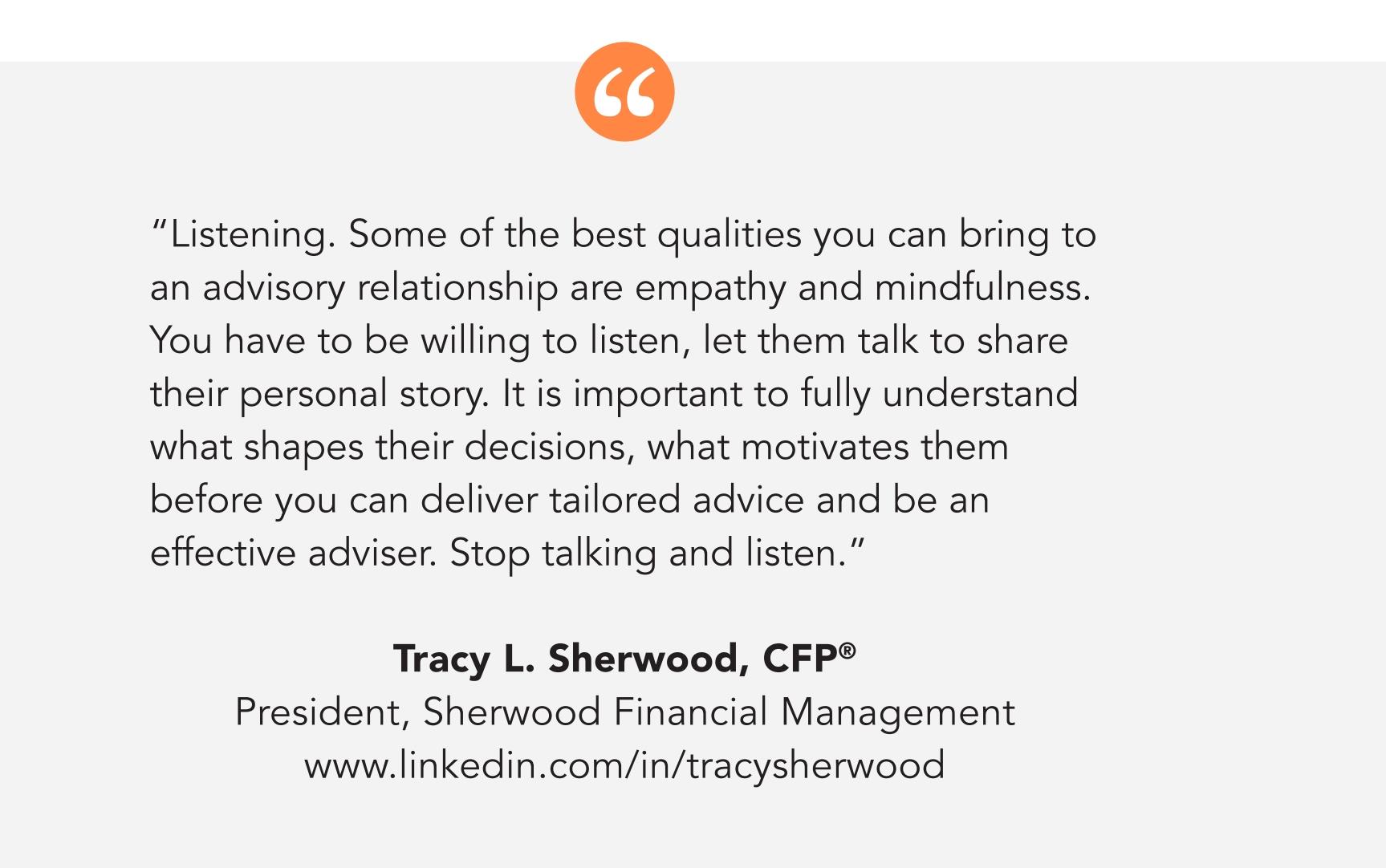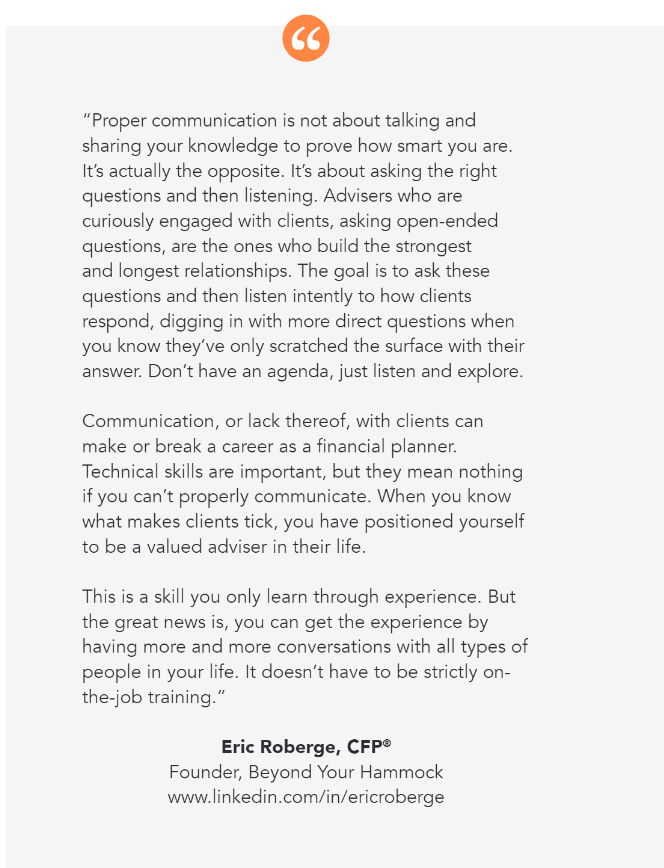“Weekend Content for New Financial Planners” is a collection of articles, podcasts, videos, etc. that I’ve been consuming regarding breaking into financial planning, industry trends, career development, and more.
Tactics for getting prospects (or hiring managers) to “know, like, and trust” you:
“The “know, like, trust” factor is the foundation for every relationship in business. Without it, you won’t make sales or sign new clients. With it, you are well on your way to cultivating profitable and fulfilling relationships that enable you to grow a business that you love.”
The “Know, Like, Trust Factor” In Your Marketing (Crystal Lee Butler, Advisor Perspectives)
An aspect required to build trust that’s often missed:
“The majority of advisors’ websites are filled with data, resources, and other information intended to show their competence. Your expertise is important to build what is known as ‘cognitive’ trust, but there’s another aspect of trust often ignored. It’s called ‘affective’ trust.”
A New Twist On Earning Trust (Dan Solin, Advisor Perspectives)
Spot the theme in this collection of advice for new planner’s looking to improve their communication skills:
Skills New Planners Need To Sharpen To Best Communicate With Clients (FPA Next Generation Planner)
The 6 levels of listening:
“While many of us have thought of being a good listener as being like a sponge that accurately absorbs what the other person is saying, instead, what these findings show is that good listeners are like trampolines. They are someone you can bounce ideas off of — and rather than absorbing your ideas and energy, they amplify, energize, and clarify your thinking. They make you feel better not merely passively absorbing, but by actively supporting. … Of course, there are different levels of listening. Not every conversation requires the highest levels of listening, but many conversations would benefit from greater focus and listening skill.”
What Great Listeners Actually Do (Jack Zenger & Joseph Folkman, Harvard Business Review)
The importance of an overlooked skill – good note-taking:
“Note-taking is an overlooked skill that is crucial to your development as a financial planner. I know what you’re thinking: “I took notes in college… I know what I’m doing”. You’re right, you did take notes in school, but the expectations here are different. Good note-taking helps you and others understand the client, holds the client and team members accountable, paints a picture of the client’s progress, allows the firm to deliver a top-tier client experience, and protects your firm from potential liability. Refining this skill can make you indispensable to your team. So how do you become a good note-taker? Like most things, it’s part art, part science, and comes with a lot of practice.”
How To Take Notes In A Client Meeting (Jesse Lineberry, New Planner Recruiting)
Note-taking methods and tech:
“Regardless of the medium, there are several traditional frameworks for organized note-taking. Two examples include the “Cornell Method”, which divides the page into functional areas for notes during and after a meeting, with space to create an overall summary, and the “Charting Method”, which organizes main points in a columnar format (useful for discussions bouncing back and forth between a few main topics). For advisors specifically, “Guided Notes” are customized templates useful for conducting meetings in a consistent, organized fashion.”
Client Note-Taking: Frameworks And Tools For Advisors To Improve Client Conversations (Michael Lecours, Kitces.com)
A compilation of resources for accelerating your learning:
“If you want to supercharge your learning, the single most effective technique we’ve uncovered for absorbing new concepts comes from the famed Nobel Prize-winning physicist Richard Feynman. The Feynman Technique ensures you understand what you learn.”
Accelerated Learning: Learn Faster and Remember More (Shane Parrish, Farnam Street)
7 principles to make the most of your time this week:
“One of the hardest things to do in life is to say “no.” To invitations, to requests, to obligations, to the stuff that everyone else is doing. Even harder is saying no to certain time-consuming emotions: anger, excitement, distraction, obsession, lust. None of these impulses feels like a big deal by itself, but run amok, they become commitments like anything else.”
How To Have The Best Week Ever (Ryan Holiday, RyanHoliday.net)
What topic resonated with you? Comment below!
Follow me on social media for the latest updates:









